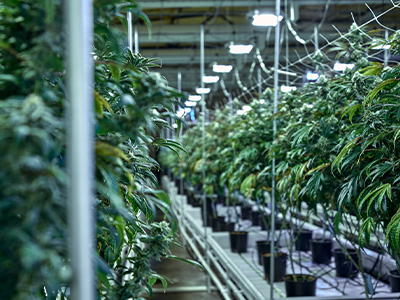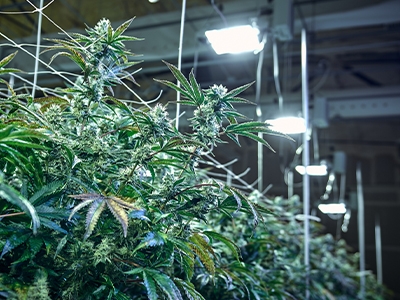Oregon’s fertile soils and pioneering spirit continue to position the state as a leader in hemp production—thanks in large part to innovative farmers who are collaborating with researchers to develop unique hemp flower strains. These new strains are specifically bred to thrive in Oregon’s diverse microclimates, yield robust cannabinoid profiles, and appeal to consumers seeking sustainable, high-quality products.
One farm at the forefront of these developments is Hemp Flower Co., situated in the heart of the Willamette Valley. Michal P., Founder of Hemp Flower Co., has been working closely with plant breeders and universities to create strains that deliver both strong agronomic performance and high consumer appeal.
“We’re constantly experimenting with new genetics,” Michal P. explains. “The goal is to cultivate strains with a rich terpene profile, balanced cannabinoid content, and resilience to local pests and weather patterns.”
Collaborative R&D Shaping the Future
The process of developing novel hemp strains involves an intricate blend of scientific research and on-the-ground farming experience. Oregon’s universities play a key role, running trials to test how different seed varieties perform under varying conditions. Farmers like Hemp Flower Co. then share real-world data to fine-tune breeding programs, ensuring that each subsequent generation of hemp plants is better adapted to local conditions.
“Our climate can range from damp coastal areas to hot, dry inland valleys,” notes Michal P. “By partnering with researchers who understand these microclimates, we’re able to breed plants that flourish in each specific environment—leading to healthier crops and more consistent yields.”

Cannabinoid Profiles and Consumer Appeal
While many still associate hemp primarily with potent strains, the industry is quickly moving toward a more nuanced understanding of cannabinoids. Growers are experimenting with sativa and indica and other minor cannabinoids that offer distinct effects and benefits. At the same time, flavor and aroma profiles—driven by terpene diversity—are becoming central to consumer choice.
“We’ve seen an uptick in requests for strains that offer unique taste and aroma,” Michal P. says. “People want a variety of flavor experiences, from citrus and floral to pine and earthy. We’re breeding for those characteristics, which also ties into how the plant interacts with our local ecosystems.”
Impact on Yield and Bottom Lines
From a farmer’s perspective, robust yields are essential for viability. That’s why Hemp Flower Co. focuses on strains with short flowering times, pest resistance, and strong stalk structures. The result is a crop that not only meets regulatory standards—particularly the 0.3% Delta-9 threshold—but also consistently generates revenue for both small and large-scale operations.
“We’re seeking a balance between novelty and reliability,” Michal P. remarks. “Every strain we endorse must deliver enough biomass and maintain a favorable cannabinoid ratio. If it can also stand up to pests naturally, that reduces our reliance on pesticides and aligns with our commitment to sustainable farming.”
A Glimpse Ahead
With consumer demand for hemp products showing no sign of slowing down, Oregon’s focus on strain development is set to expand. As more farmers share data and innovative research projects come online, the state’s agricultural community will continue to set the bar for hemp genetics—and, by extension, the entire hemp industry nationwide.
Disclaimer: All hemp products referenced above are cultivated, processed, and distributed in accordance with the 2018 U.S. Farm Bill, which requires that any hemp-derived product contain no more than 0.3% Delta-9 on a dry-weight basis. At the same time, these products are federally legal.
Media Contact
Company Name: Rise Marketing
Contact Person: Media Relations
Email: Send Email
Phone: 9712639988
Country: United States
Website: https://hemp-flower.com/collections/thca-flower






